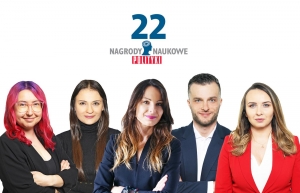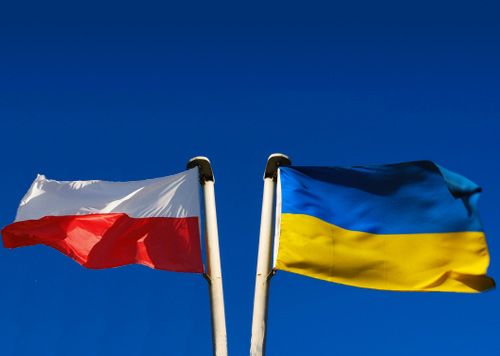We are pleased to announce that three projects from the Institute of Slavic Studies have received funding as part of the POLONEZ BIS 2 competition of the National Science Centre.
Dr Anna Becker from Germany will implement a project titled “New multilingual realities in Polish higher education: The negotiation of language practices, identities, and ideologies in times of unprecedented migration and resurgent nationalism”. Dr hab. Nicole Dołowy-Rybińska, prof. ISS PAS will be her mentor.
Dr Anton Dinerstein from Belarus received funding for a project titled “Power and identity in Russian-language political discourse: The case of Belarus”. The project will be supervised by dr hab. Anna Engelking, prof. ISS PAS.
Dr Orest Semotiuk from Ukraine will conduct research on the topic “Laughter during the war: Russian aggression in Ukraine in political cartoons and memes” under the supervision of dr hab. Roman Roszko, prof. ISS PAS.
In the second edition of the POLONEZ BIS call, 153 applications were submitted to the National Science Centre. 52 projects with a total value of almost PLN 48.2 million were qualified for financing. In the humanities, social sciences, and arts 18 projects received funding.
The POLONEZ BIS call is addressed to researchers from abroad who have a PhD degree or at least four years of full-time research experience and who have not stayed, worked or studied in Poland in the three years preceding the opening date of the call for proposals for more than 12 months in total. In the competition, the applicants can receive funds for the implementation of 24-month research projects, including i.a. remuneration for the PI and members of the research team, including scholarships for students or doctoral students, and expenses necessary for the implementation of the research project.
POLONEZ BIS is co-financed by the European Commission and the National Science Centre under the Marie Skłodowska-Curie COFUND grant.
More information on the competition and the results is available on NCN’s website:
https://ncn.gov.pl/aktualnosci/2022-12-06-wyniki-opus23-preludium21-polonezbis2

